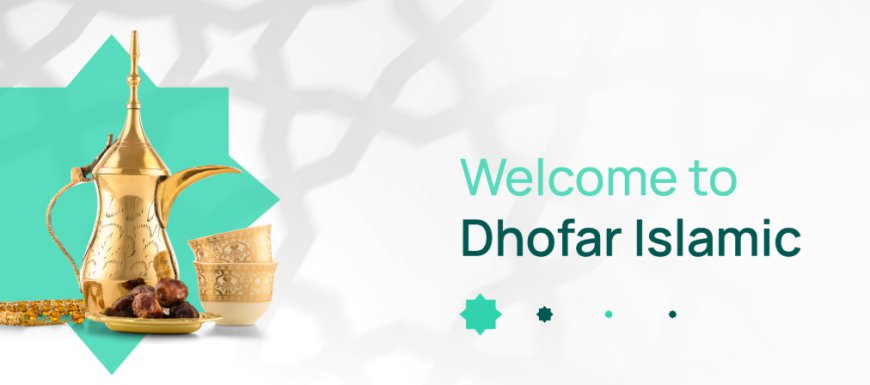Benefits of Choosing Islamic Finance for Your Financial Needs in Oman
Explore the key benefits of choosing Islamic finance for your financial needs in Oman. Learn how Sharia-compliant solutions provide ethical, transparent, and sustainable financial services aligned with Islamic values.

Islamic Banking finance, also known as Sharia Bnaking finance, has become an increasingly popular choice for individuals and businesses seeking financial services that align with their values. In Oman, where Islamic culture and traditions play an essential role in daily life, Islamic finance offers a range of advantages that make it a compelling choice for many. Here are some of the key benefits of choosing Islamic finance for your financial needs in Oman.
1. Compliance with Sharia Law
One of the primary benefits of Islamic finance is its adherence to Sharia law, the ethical and moral framework derived from the Quran and the teachings of the Prophet Muhammad (PBUH). Sharia finance ensures that all financial transactions comply with Islamic principles, such as the prohibition of interest (riba) and unethical practices like gambling (maysir) and uncertainty (gharar). For those who prioritize religious observance, Islamic finance provides a way to engage in financial activities without violating their faith.
In Oman, the government supports Sharia finance and ensures that these services operate under regulations that promote transparency and fairness, which further boosts trust in these solutions.
2. Ethical and Socially Responsible Investments
Islamic finance promotes ethical investment practices that focus on social justice, fairness, and responsibility. Since Sharia law prohibits investing in industries such as alcohol, tobacco, gambling, and weapons, Islamic financial services in Oman tend to support projects and companies that have a positive social impact. This could be in areas like healthcare, education, renewable energy, and infrastructure development.
Choosing Islamic finance allows individuals and businesses to invest in a way that aligns with ethical values, ensuring that their financial activities contribute to the well-being of society. This social responsibility aspect appeals not only to those who observe Islamic teachings but also to those seeking ethical investment opportunities.
3. Profit-and-Loss Sharing Models
Islamic finance operates on a profit-and-loss-sharing (PLS) model, unlike conventional systems that rely on interest-based lending. In Sharia Banking, products such as mudarabah (profit-sharing) and musharakah (joint venture) enable customers to share the risks and rewards of investments. These models foster a more equitable distribution of wealth, ensuring that both parties have a stake in the success of a project or investment.
This shared-risk approach reduces the likelihood of financial instability and encourages responsible financial behavior. It also creates a sense of partnership between the parties, which builds trust and aligns both sides' interests.
4. Avoidance of Debt Burden
In traditional financial systems, interest-based loans often lead to a growing debt burden for individuals and businesses. Islamic Banking, however, avoids charging interest, which means that customers do not face accumulating debt or the stress of paying interest on loans. Instead, Sharia-compliant financing solutions such as murabaha (cost-plus financing) and ijarah (leasing) are structured in a way that benefits both parties without violating Sharia principles.
By avoiding interest, Islamic finance ensures that individuals and businesses can manage their finances more sustainably. This also reduces the financial pressure on borrowers, contributing to a healthier economy.
5. Transparency and Fairness
Islamic finance promotes transparency in all financial dealings. Sharia-compliant contracts are designed to be clear and equitable, which reduces the likelihood of disputes between parties. Providers of Islamic banking finance services in Oman are required to disclose all terms and conditions of their products, ensuring that customers fully understand their financial commitments.
Moreover, the prohibition of exploitative practices, such as charging excessive fees or engaging in hidden terms, ensures fairness in all transactions. This creates a secure and trustworthy financial environment for individuals and businesses alike.
6. Growing Sector in Oman
The Islamic finance sector in Oman has seen significant growth in recent years, with an increasing number of institutions offering Sharia-compliant financial products and services. The government has actively encouraged the development of Islamic finance, and the Central Bank of Oman has put in place a regulatory framework that supports its growth.
For individuals and businesses in Oman, this expanding sector provides a diverse range of financial products, from savings accounts to financing solutions and investment services, all designed to meet their specific needs while adhering to Islamic principles.
Choosing Islamic finance for your financial needs in Oman offers numerous benefits, including adherence to Sharia Banking , ethical investment opportunities, profit-sharing models, and a commitment to transparency and fairness. These advantages make Islamic finance a compelling option for those who seek to align their financial activities with their values and contribute positively to society. With the growing presence of Sharia-compliant financial services in Oman, there are more choices than ever for individuals and businesses to access sustainable and ethical financial solutions.

 aasthab022
aasthab022